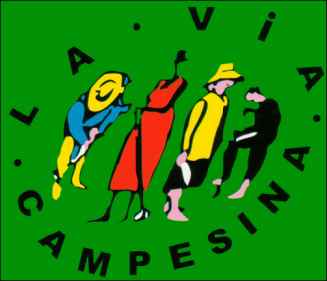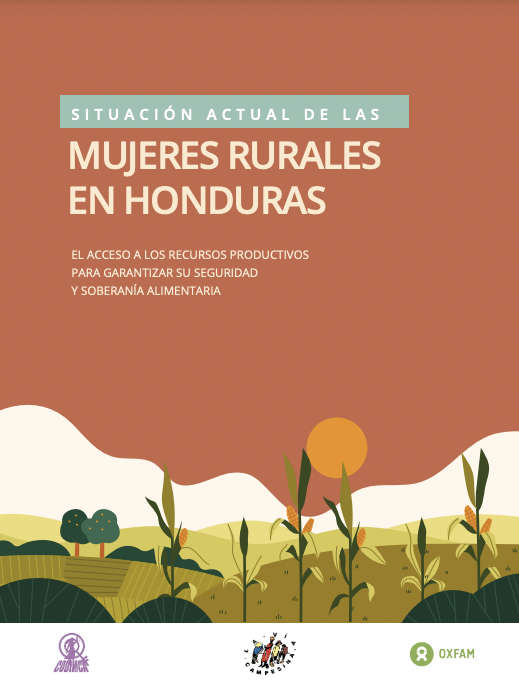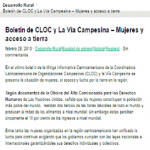Location
What is La Via Campesina?
The international peasant's voice
Unity among peasants, landless, women farmers and rural youth
La Via Campesina is the international movement which brings together millions of peasants, small and medium-size farmers, landless people, women farmers, indigenous people, migrants and agricultural workers from around the world. It defends small-scale sustainable agriculture as a way to promote social justice and dignity. It strongly opposes corporate driven agriculture and transnational companies that are destroying people and nature.
La Via Campesina comprises about 164 local and national organizations in 73 countries from Africa, Asia, Europe and the Americas. Altogether, it represents about 200 million farmers. It is an autonomous, pluralist and multicultural movement, independent from any political, economic or other type of affiliation.
Globalizing hope, globalizing the struggle!
La Via Campesina is built on a strong sense of unity and solidarity between small and medium-scale agricultural producers from the North and South. The main goal of the movement is to realize food sovereignty and stop the destructive neoliberal process. It is based on the conviction that small farmers, including peasant fisher-folk, pastoralists and indigenous people, who make up almost half the world's people, are capable of producing food for their communities and feeding the world in a sustainable and healthy way.
Women play a crucial role in the Via Campesina work. According to the FAO, women produce 70% of the food on earth but they are marginalized and oppressed by neoliberalism and patriarchy. The movement defends women rights and gender equality at all levels. It struggles against all forms of violence against women.
Defending Food Sovereignty
Via Campesina launched the idea of “Food Sovereignty” at the World Food Summit in 1996. This idea has now grown into a global people's movement carried by a large diversity of social sectors such as the urban poor, environmental and consumer groups, women associations, fisher-folks, pastoralists and many others. It is also recognized by several institutions and governments.
Food sovereignty is the right of peoples to healthy and culturally appropriate food produced through sustainable methods and their right to define their own food and agriculture systems. It develops a model of small scale sustainable production benefiting communities and their environment. It puts the aspirations, needs and livelihoods of those who produce, distribute and consume food at the heart of food systems and policies rather than the demands of markets and corporations.
Food sovereignty prioritizes local food production and consumption. It gives a country the right to protect its local producers from cheap imports and to control production. It ensures that the rights to use and manage lands, territories, water, seeds, livestock and biodiversity are in the hands of those who produce food and not of the corporate sector. Therefore the implementation of genuine agrarian reform is one of the top priorities of the farmer's movement.
Food sovereignty now appears as one of the most powerful response to the current food, poverty and climate crises.
Members:
Resources
Displaying 1 - 5 of 10Situación Actual de las Mujeres Rurales en Honduras
El documento “Situación de las Mujeres Rurales en Honduras” presenta un detallado informe y análisis de la realidad actual en temas de acceso a los recursos productivos desde al análisis documental y desde la percepción misma de las actoras.
La lutte de la Via Campesina pour la réforme agraire, la défense de la vie, de la terre et des territoires
Date : 2017
Source : Foncier & Développement
A l’occasion de la journée de la souveraineté alimentaire, La Via Campesina sort sa nouvelle publication, appelant au changement radical de nos systèmes agro-alimentaires.
Honduras : ante la criminalización de la lucha por la tierra y el territorio a la mujer campesina e indígena
Nosotras la Articulación de Mujeres de La Vía Campesina Honduras, integrada por representantes de las organizaciones campesinas (ANACH, CNTC, CODIMCA, UCIH-Choluteca y ADROH-La Paz), reunidas en Tegucigalpa, Honduras, hicimos un análisis de la grave situación que están viviendo las mujeres campesina, indígenas y garífunas ante la ola represiva de criminalización por la lucha por la tierra y el territorio.
Agroecología campesina por la soberanía alimentaria y la madre tierra. Experiencias de La Vía Campesina
Las mujeres, hombres, ancianos y jóvenes campesinos, indígenas, jornaleros, trabajadores rurales sin tierra, y otros pueblos del campo que hace La Vía Campesina están comprometidos con la lucha por la defensa y recuperación de nuestra tierra y territorios, que permiten preservar nuestro modo de vida, nuestras comunidades, y nuestra cultura.
Mujeres y acceso a tierra
En el ultimo boletín de la Minga Informativa Centroamericana de la Coordinadora Latinoamericana de Organizaciones Campesinas (CLOC) y la Vía Campesina se presenta la situación de mujeres, el acceso y lucha por la tierra en la región.




